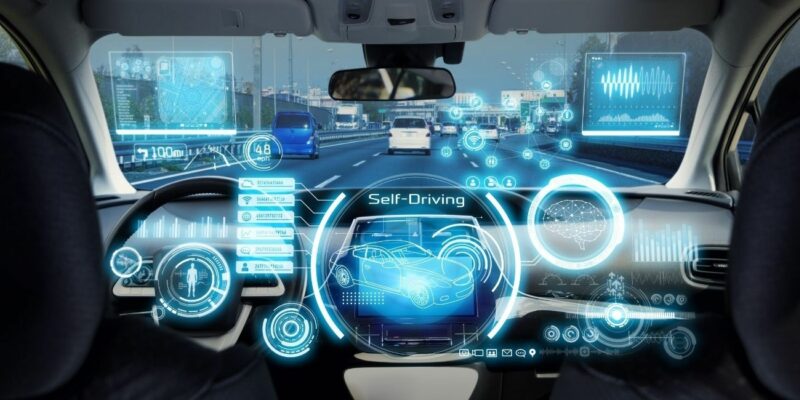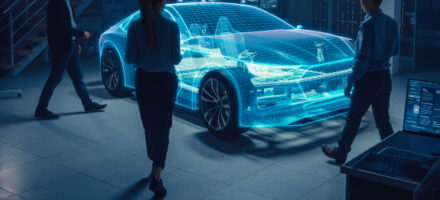
The Future of the Automotive Industry
Looking at the way in which the car industry has been transforming over the past few years, we’re undoubtedly arriving at an exciting point on the timeline of the automobile. The electric revolution is firmly underway, new markets are emerging and technology is moving the industry forward into new territories that are set to become cornerstone elements of the sector.
Like many other industries, digitisation, automation and new ways of doing business have all heavily disrupted and influenced the automotive world. Looking past the typical future-talk and jargon, though, what does that actually mean for the not-so-distant future of the automotive industry?
Here’s what we can expect to see in the coming years.
The Dawn of the Mobility Industry and the Four Themes Behind It
A few years back, various analysts in the sector identified the beginning of the mobility industry – a broader concept built on the back of developments in the automotive sector. In the new mobility industry, there are four main themes that can be defined – all of which have enjoyed massive progress in the last few years and will continue to develop over the next few years.
Electrification
For the casual onlooker, the most obvious of the four themes is the electrification of the car market. With the 2030 petrol/diesel new car sales ban only eight years away, the futures of diesel cars, petrol cars and, by 2035, hybrid cars are set in stone, with battery electric vehicles (BEVs) sales set to become the norm come the latter half of this decade.
At this stage, the only remaining factor holding back BEV sales is the upfront price point. Our recent blog on the takeover of electric cars suggested that ongoing reductions in battery-pack prices could see sales-floor price parity (or better) between BEVs and combustion vehicles by around 2027. Across 2021 alone, BEV, plug-in hybrid (PHEV) and hybrid electric vehicle (HEV) registrations shot up 58.7% year-on-year, with more BEVs registered last year than in 2016-2020 combined.
With all new vehicles in the UK set to be electrically propelled by 2035, many experts are targeting 2050 as the year in which we’ll see almost complete electrification of our roads.
Connectivity
In-car connectivity in new cars is nothing new these days, with the likes of phone connectivity and help services somewhat run-of-the-mill. But it’s the potential scope for the future of connected cars that’s more eye-catching. Elements like enhanced telematics, AI interfaces, vehicle-to-vehicle connectivity, 5G connectivity and, somewhere down the line, even brain-to-vehicle technology are all either in-progress or distinct possibilities.
Particularly when coupled with autonomous driving, connectivity advances could see your car become a font of productivity, meaning that your drive to work or a trip down the motorway is merely a different view out of the window as you carry on living your life.
Diversification
The introduction and rampant success of ride-hailing and ride-sharing platforms like Uber has likely changed the way in which we engage with our vehicles for good. Back in 2019, the government released an extensive document detailing what mobility could look like in 2040, with a variety of scenarios presented including car ‘usership’ rather than ownership, greener and safer communities based on the increased impact of automation and a shift in travel behaviours. This includes the introduction of an integrated single platform for multiple digital transport services, better known as Mobility as a Service (MaaS).
Autonomy
Are self-driving cars the future of transportation? Given the success and demand around autonomous vehicle technology from the likes of Tesla, the future of self-driving cars certainly looks bright. As we’ve established above, autonomy plays an integral role in the mobility picture as a whole, facilitating better connectivity and diversification in the industry, as well as paving the way for much-improved safety and sustainability numbers going forward.
The future picture for fully self-driving cars is a bit of an unknown for now, however. A report from the BBC floated a few interesting concepts for autonomous driving, including ‘robotaxis’, but also suggested that we’re unlikely to see completely autonomous vehicles on the market in the next 10 years due to the challenges in creating suitable infrastructure to support this new era of travel.
Quickfire Questions on the Future of the Car Industry
What will cars of the future look like?
What cars on our roads will look like in 10, 20 or 50 years’ time is somewhat of a mystery but there are a few markers both on the market and at motor shows for where the design of future cars could head. Science Focus put together a list of nine revolutionary car designs out there at the moment that could shape the industry’s future, including the colour-changing BMW iX Flow that wowed onlookers at CES 2022.
What does the future of automotive retail look like?
While it’s unlikely that your typical car dealership will disappear off the face of the earth anytime soon, the future of car retailing will probably take on a more digital direction. The idea of a digital ecosystem where car dealers bring together a variety of interconnected services looks likely, as does a more customer-focused approach online.
What about the future of car safety?
Should we get to a point where truly autonomous vehicles are readily available, road-safety statistics should improve significantly as technology removes one of the biggest elements of risk on our roads – human error. In the meantime, driver assists and safety technologies are improving all the time, with concepts like biometric vehicle access, augmented-reality displays and active health monitoring all popping up in new cars.
And the future of automotive manufacturing?
With the car itself set to change massively, the manufacturing process will have to adapt, too. Manufacturing facilities are set to undergo significant changes to incorporate autonomous and electric vehicle growth as well as the rise of mobility services. As with many industries, sustainability will also be a major focus point for car manufacturers, as seen with the use of lighter, reusable and bioengineered materials to increase the green and efficiency factors in the industry.
What is the future range of electric cars?
Along with getting cheaper, EV battery technology is improving all the time. Independent market researcher IDTechEx has floated the possibility of 1,000-mile range EVs by the 2040s, so there’s plenty of room for growth between now and then.
Buy Into the Future Now With Jardine
We’re already seeing the future of the car market take shape with class-leading electric cars hitting the market all the time. Take a look at our full electric and hybrid range and find your car for now and the future with Jardine.
Ready to get started on your buying journey? Visit your nearest Jardine dealership today, or book in a virtual appointment with a member of our team.
You Might Also Like
- Electric Car Predictions For 2022
- The Most Exciting New Car Releases For 2022
- Best Luxury Car Releases For 2022
Don’t forget to visit our YouTube channel, where you can find all sorts of car reviews and expert advice.



